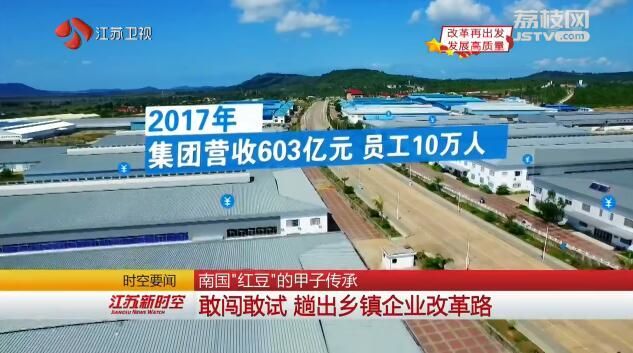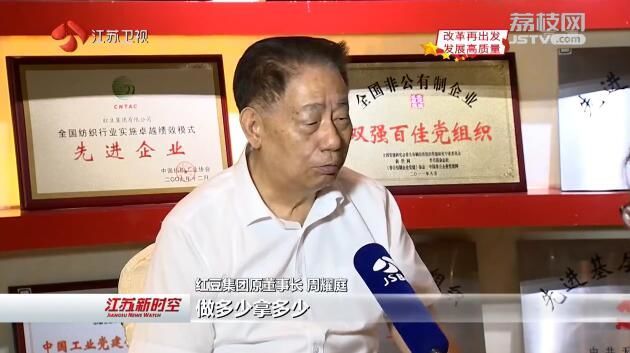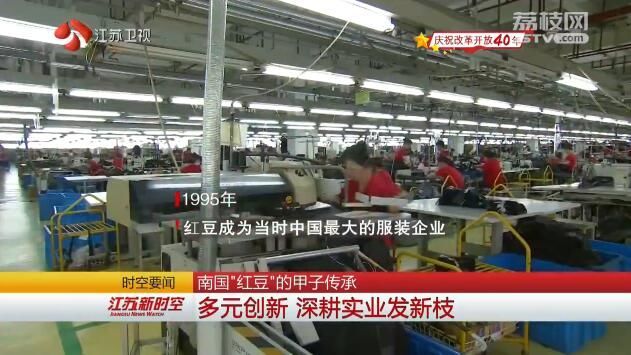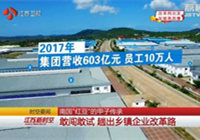The Hodo Group in east China’s Jiangsu province has strived to make breakthroughs by cashing in on the opportunities brought about by the country’s reform and opening up in the past four decades.

Digital stores are an important part of the intelligent system that Hodo is now making vigorous transformation and upgrading. Today's Hodo has two industrial parks, three listed companies, and four leading multinational companies. In 2017, the group's revenue was 60.3 billion yuan and the number of employees reached 100,000. This scale was unimaginable when Zhou Linsen and Jiang Yuansheng set up a batting factory in Wuxi Donggang Town in 1957. It was also unimaginable when Zhou Yaoting, the son of Zhou Linsen, merged a knitting factory in 1983.

By reforming the wage system, implementing performance-based appointments, and establishing assembly lines, Zhou Yaoting, through a series of drastic reforms, quickly brought the factory back to life. The sales of the company jumped from 280,000 yuan in 1982 to 530,000 yuan in 1983 and kept doubling at an interval of two years ever since then.
In the period of rapid development, Zhou Yaoting did not dare to slack off, because he realized that the bottleneck of talent is the biggest problem that restricts the development of township enterprises. He talked his son Zhou Haijiang, then a teacher at Hohai University, into quitting his job and returning home to grow the business.
With Zhou Haijiang taking the lead, Hodo has been able to attract more and more university graduates from all over the country, injecting fresh blood into the enterprise. In 1988, Hodo's first patented product, the nurse's shirt, was promoted on the market and soon gained popularity all over the country. Anchorpersons of CCTV also wore Hodo’s shirts in the studio. Product innovation and technological innovation helped Hodo to create its own brand.

Product styles must be innovative, and institutional mechanisms must be innovative. Under the proposition of Zhou Haijiang, in 1992, Jiangsu Hongdou Knitting Group, the first township enterprise group in Jiangsu, was formally established. Through the implementation of the organization of the small factory and large company system, the internal market system of production and the effectiveness of the contracting system, the full-fledged shareholding cooperation system on property rights fully stimulates internal competitiveness and cohesion.
This mechanism innovation has enabled Hodo to become the largest garment enterprise in China at that time, providing a development sample for the "New South Jiangsu model". Hodo, however, did not stop but continued to carve out a new path of diversification.
In the meantime, Hodo made inroads into truck tire market and soon ranked among the top three in the country. Its real estate development has set a model for new countryside construction. It also took the lead in responding to the country's "going out" strategy to develop and construct the Sihanoukville Port Special Economic Zone in Cambodia, and become a model for the country’s Belt and Road initiative for win-win.
(source:ourjiangsu.com)






